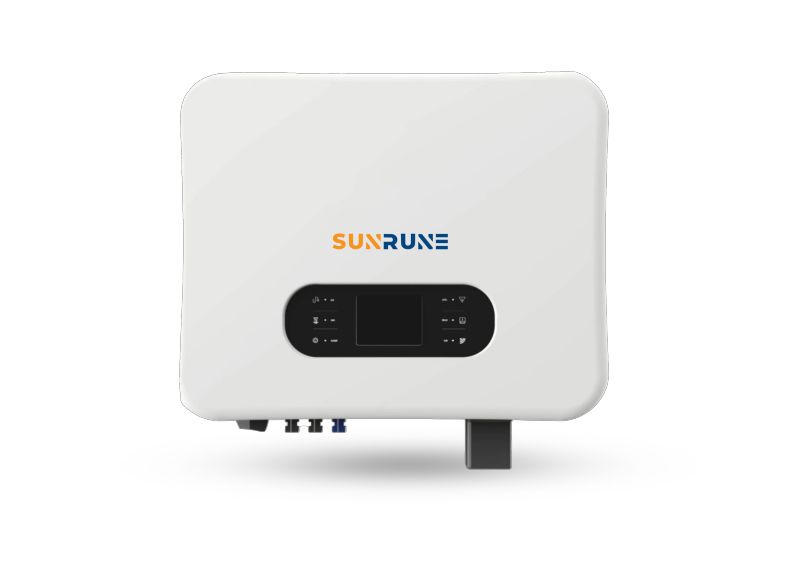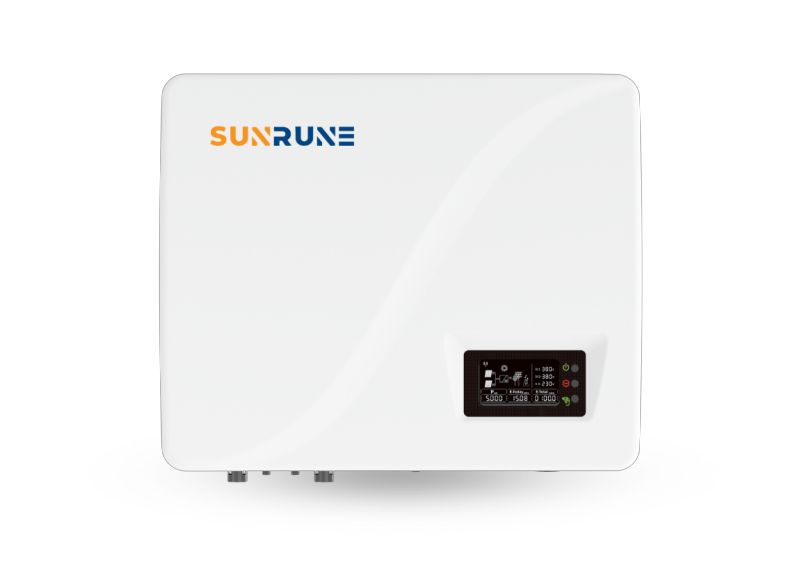
In recent years, solar energy has become increasingly popular as a renewable and environmentally friendly energy source. As more homeowners invest in solar panels to generate electricity, they also need to consider the lifespan of their solar inverters. The solar inverter is an important part of the solar power system and is responsible for converting the DC power generated by the solar panels into AC power that can be used by household appliances.
The average lifespan of a residential solar inverter is usually about 10 to 15 years. However, this may vary depending on a number of factors, including the quality of the inverter, maintenance and environmental conditions.
The quality of the inverter plays an important role in its service life. Investing in a reputable brand and high-quality solar inverter ensures longevity and reliable performance. Cheaper, lower quality inverters may have a shorter lifespan and may need to be replaced sooner, resulting in additional costs in the long run. It’s crucial to research and choose a reliable inverter from a trustworthy manufacturer to maximize its lifespan.
Regular maintenance is essential to extend the life of your residential solar inverter. Cleaning the inverter and ensuring it is free of dust and debris can prevent overheating and increase efficiency. Regular inspections by professionals can help detect any potential problems early and resolve them promptly to avoid major damage that could affect the lifespan of your inverter. Additionally, following the manufacturer's maintenance recommendations, such as firmware updates, can enhance your inverter's performance and extend its lifespan.
Environmental conditions can also affect the lifespan of a residential solar inverter. Extreme temperatures, whether hot or cold, can affect the performance and durability of your inverter. In high-temperature areas, the inverter may be subject to greater stress, which may result in a shortened service life. Likewise, if the inverter is exposed to freezing temperatures without proper insulation, it can cause failure. Choosing the right location for the inverter and providing adequate ventilation and protection from harsh weather conditions can help extend its lifespan.
While the average lifespan of a residential solar inverter is 10 to 15 years, it's worth noting that some models have exceeded this time frame. Technological advancements and improvements in manufacturing processes have made inverters more durable and long-lasting. It's not uncommon for high-end inverters to have service lifespans of 20 years or more. However, it is important to remember that when a solar inverter reaches the end of its life, its efficiency may decrease. Therefore, it is recommended to consider replacement or upgrade after 10 to 15 years.

The service life of a residential solar inverter directly affects a homeowner’s return on investment. When evaluating the cost of installing a solar power system, including solar panels and inverter, the expected service life of the inverter must be considered. By understanding the service life, homeowners can estimate the savings and benefits they will enjoy over the life of the system. Additionally, investing in a durable inverter can give you peace of mind and minimize the need for frequent replacement or repairs.
All in all, the average lifespan of a residential solar inverter is about 10 to 15 years, but this can vary depending on the quality of the inverter, maintenance and environmental conditions. Homeowners should invest in high-quality inverters, perform regular maintenance, and consider environmental factors to maximize the lifespan of their solar inverters. By doing this, they can enjoy the benefits of solar energy for decades while minimizing the potential costs and inconvenience associated with inverter replacement.
Post time: Oct-14-2023